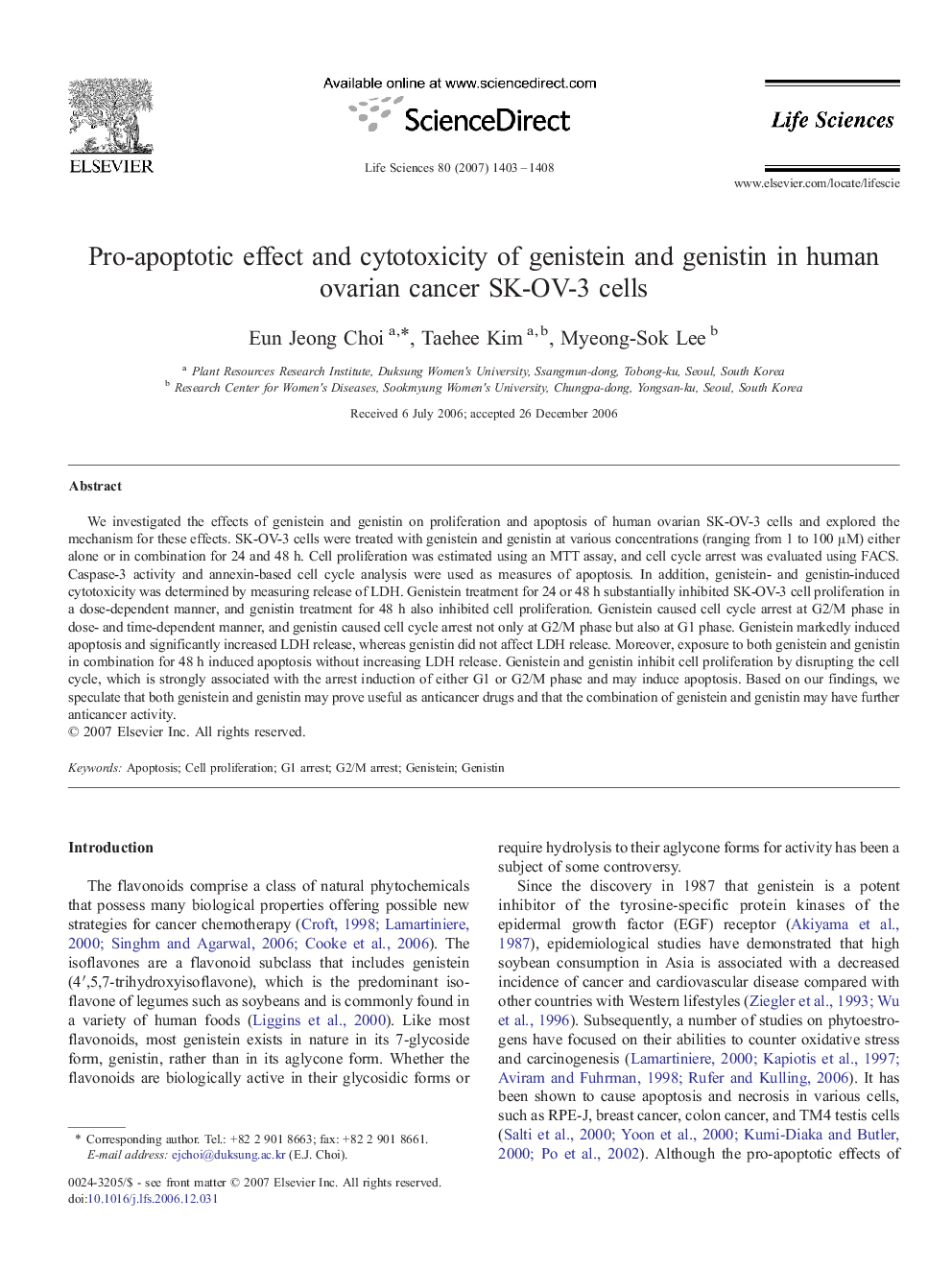| Article ID | Journal | Published Year | Pages | File Type |
|---|---|---|---|---|
| 2552809 | Life Sciences | 2007 | 6 Pages |
We investigated the effects of genistein and genistin on proliferation and apoptosis of human ovarian SK-OV-3 cells and explored the mechanism for these effects. SK-OV-3 cells were treated with genistein and genistin at various concentrations (ranging from 1 to 100 μM) either alone or in combination for 24 and 48 h. Cell proliferation was estimated using an MTT assay, and cell cycle arrest was evaluated using FACS. Caspase-3 activity and annexin-based cell cycle analysis were used as measures of apoptosis. In addition, genistein- and genistin-induced cytotoxicity was determined by measuring release of LDH. Genistein treatment for 24 or 48 h substantially inhibited SK-OV-3 cell proliferation in a dose-dependent manner, and genistin treatment for 48 h also inhibited cell proliferation. Genistein caused cell cycle arrest at G2/M phase in dose- and time-dependent manner, and genistin caused cell cycle arrest not only at G2/M phase but also at G1 phase. Genistein markedly induced apoptosis and significantly increased LDH release, whereas genistin did not affect LDH release. Moreover, exposure to both genistein and genistin in combination for 48 h induced apoptosis without increasing LDH release. Genistein and genistin inhibit cell proliferation by disrupting the cell cycle, which is strongly associated with the arrest induction of either G1 or G2/M phase and may induce apoptosis. Based on our findings, we speculate that both genistein and genistin may prove useful as anticancer drugs and that the combination of genistein and genistin may have further anticancer activity.
